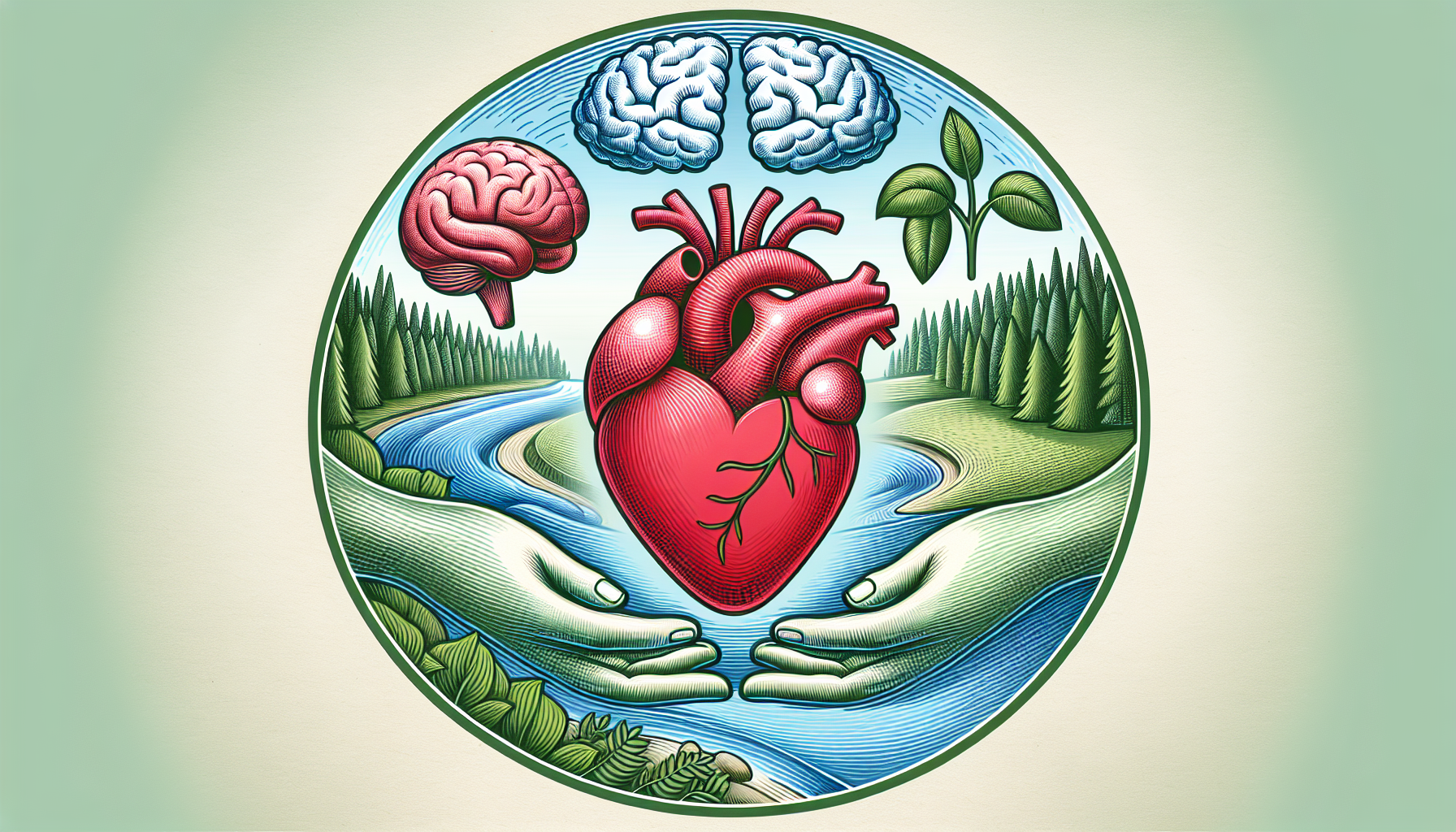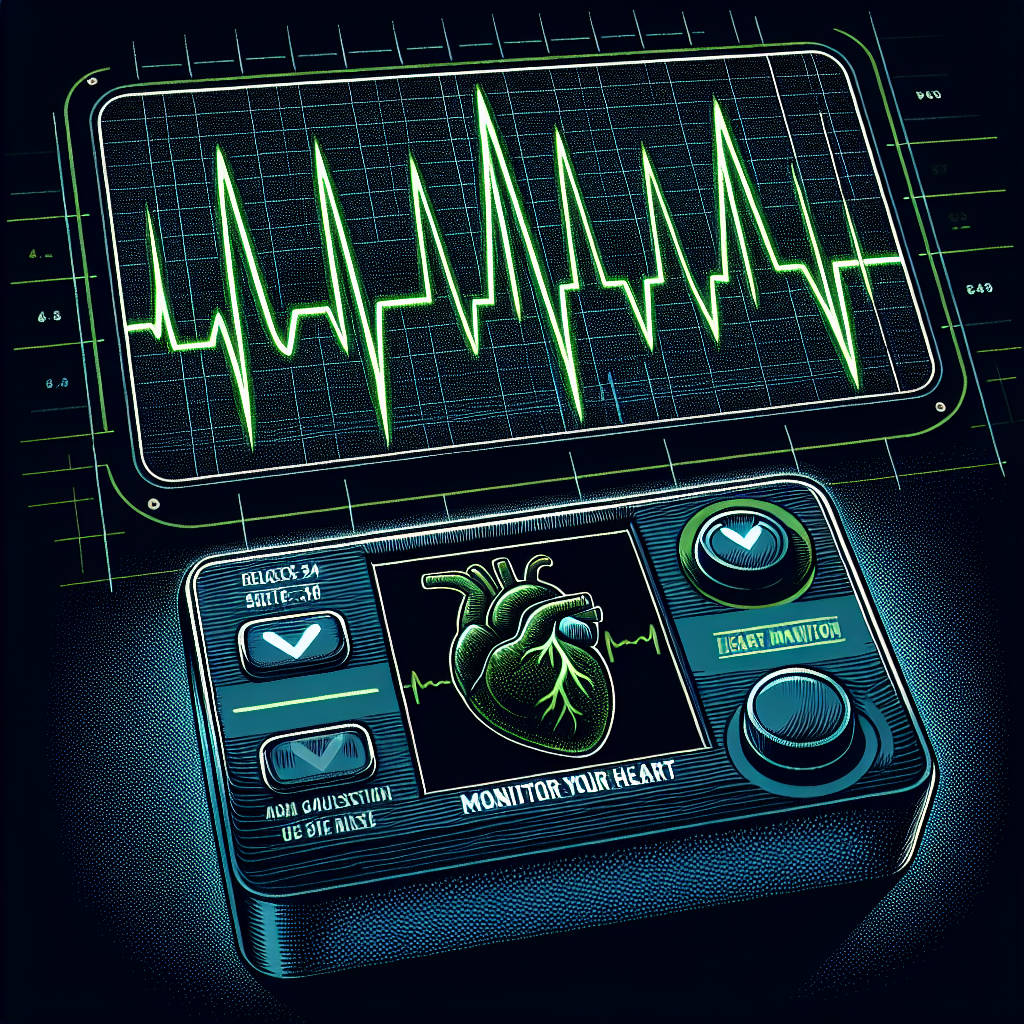The intersection of heart health and mental health is a complex and often underappreciated aspect of holistic healthcare. Individuals with mental health disorders are at a higher risk of developing cardiovascular diseases, making it imperative to address heart health proactively in this population. This article aims to explore the multifaceted relationship between the heart and the mind, providing insights into the best practices for managing heart health in patients with mental health disorders.
The Link Between Mental Health and Heart Health
Mental health conditions such as depression, anxiety, and stress have been identified as risk factors for heart diseases. They can lead to adverse behaviors such as poor diet, inactivity, smoking, and alcohol abuse, which are detrimental to cardiovascular health. Moreover, the physiological effects of mental health issues, such as increased inflammation and changes in heart rate and blood pressure, can directly impact heart health.
Understanding Cardiovascular Health is essential for patients and healthcare providers alike, as it offers comprehensive information on maintaining a healthy heart and mitigating risks associated with mental health conditions.
Monitoring and Management Strategies
To ensure the heart health of patients with mental health disorders, a multidisciplinary approach is vital. Regular cardiac screening, lifestyle modifications, and managing medication side effects are foundational strategies.
Regular Cardiac Screening
For high-risk individuals, including those with mental health disorders, The Benefits of Regular Cardiac Screening cannot be overstated. Early detection of heart issues allows for timely interventions and can prevent the progression of cardiovascular diseases.
Lifestyle Modifications
Diet and exercise play a crucial role in heart health. Encouraging patients to engage in heart-healthy activities and consume Antioxidant-Rich Foods can significantly lower heart disease risk.
Medication Management
Certain psychiatric medications can have side effects impacting cardiovascular health. It’s crucial to balance therapeutic benefits with potential risks. Healthcare providers should consider alternatives or dosage adjustments as needed. For more information on this topic, refer to Medication & Supplements.
Integrative Care Approaches
Combining physical and mental health care, integrative care approaches can lead to improved outcomes for patients with mental health disorders.
Cardiac Rehabilitation Programs
Cardiac Rehabilitation Programs tailored to the needs of mental health patients can enhance recovery and promote sustained heart health.
Stress Reduction Techniques
Reducing stress is crucial for heart health. Techniques such as mindfulness, yoga, and therapy have been shown to lower blood pressure and heart rate, benefiting the cardiovascular system.
Social Support and Education
Educational outreach programs, such as those discussed in Cardiovascular Disease Awareness: Educational Outreach Programs, are essential in raising awareness and providing social support, which can be instrumental in managing heart health.
Addressing Specific Health Factors
Sleep Apnea
The connection between Sleep Apnea and Heart Health is particularly significant as sleep apnea can lead to heart rhythm issues, hypertension, and heart failure.
Electrolyte Balance
Maintaining Electrolyte Balance is critical for heart function, as imbalances can lead to arrhythmias and other heart conditions.
Exercise
Routine physical activity can reduce heart failure risk. The role of exercise is elaborated in The Role of Exercise in Reducing Heart Failure Risk, highlighting its importance in a comprehensive heart health strategy.
Nutritional Intake
Dietary choices, such as the inclusion of plant sterols and omega-3 fatty acids, can offer cardiovascular benefits. Information on plant-based sources of omega-3 can be found in Cardiovascular Health Advantages of Plant-Based Omega-3 Sources.
External Resources for Further Information
To deepen the understanding of these topics, here are some niche resources:
- A detailed exploration of the psychological determinants of cardiac risk can be found at the American Psychosomatic Society.
- Innovative research on the heart-brain connection is available through the HeartMath Institute.
- The National Alliance on Mental Illness offers extensive resources on mental health disorders and their impact on overall health.
- For guidance on how to implement stress reduction strategies, visit the Center for Mind-Body Medicine.
- Insights into the role of diet in heart health are provided by the American Heart Association’s Nutrition Center.
Conclusion
In conclusion, effectively addressing heart health in patients with mental health disorders requires a comprehensive, integrative approach that includes regular monitoring, lifestyle modifications, and patient education. By understanding and implementing these strategies, healthcare providers can significantly improve the cardiovascular outcomes for this vulnerable population. With continued research and education, we can better serve the needs of those at the intersection of mental and heart health, ensuring a more proactive and preventive approach to their care.



